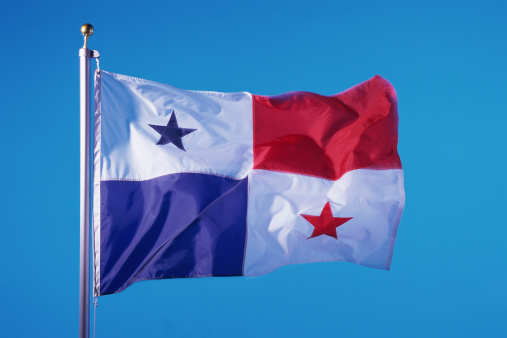This article originally appeared on The Sovereign Investor on Sept. 15.
I’m flying in through Copa Airlines toward one of the busiest travel hubs in the Americas, the Aeropuerto Internacional de Tocumen in the Republic of Panama.
I first visited Panama in 1975, when, during the Carter-Torrijos treaty negotiations, I went there as a member of the U.S. House of Representatives Subcommittee on the Panama Canal. I have returned countless times since then, witnessing an amazing transformation over 35 years.
An impoverished military dictatorship resenting domination by a U.S colonial presence has today become one of Latin America’s leading democratic countries. Within Latin America, the country has the fastest economic growth, the lowest unemployment and greatly reduced poverty. And despite our sometimes contentious mutual history, Panamanians welcome and respect Americans.
The Panama Canal has always fascinated me and should be a source of pride for all Americans. Built by the U.S. Army Corps of Engineers and opened a century ago in 1914, it is one of the world’s greatest engineering feats. Although I had opposed surrendering the Canal to Panama, in retrospect I believe that was the right decision, one that has worked very well.
The country has grown and prospered since my first visit nearly 40 years ago. And the current $7 billion expansion of the Canal, combined with a new resident visa program, is bringing more wealth into this tropical paradise, one of the world’s leading and best offshore financial centers.
The financial and personal privacy of Americans has been destroyed by the government. Our rights have been restricted and our financial safety threatened by a debt near $18 trillion and counting. In order to pay for this mess, politicians are threatening a massive wealth confiscation.
The timing couldn’t be better for Americans to consider the Republic of Panama as an offshore haven where they can find a secure future for themselves.
As the U.S. government has continued to tighten its financial control over Americans, Panama has opened its doors even wider, offering real economic opportunities for investments and immediate residency status under a host of visa programs. Unlike the IRS’s onerous worldwide taxation of Americans, Panama’s territorial taxation encompasses only what is earned within the country.
A second home in Panama
In 2012, then-President Ricardo Martinelli signed an order creating a new category of “Immediate Permanent Resident” for foreign nationals. Executive Order 343 established a visa for foreigners from countries “that maintain friendly, professional, economic, and investment relationships with the Republic of Panama,” including the United States.
Rainelda Mata-Kelly — one of the speakers at our 2014 Total Wealth Symposium, a leading Panama immigration attorney and my longtime friend — can assist applicants who qualify for this quick-residence visa category.
And unlike the sluggish U.S. economy, Panama’s is booming. Spurred by the $7 billion modernization of the century-old Panama Canal, the country has enjoyed amazing economic growth with the unemployment rate down to 4.1 percent and the GDP up 5.8 percent in the second quarter of 2014.
When I met with Minister of the Presidency Demetrio Papadimitriu last year, he explained that Panama’s open-door policy “seeks both foreign direct investment and skilled international professionals. We are looking for workers in growth sectors such as logistics, tourism, banking and those making Panama a regional hub for multinational companies.”
Under this immigration category, qualified applicants will be able to engage in professional and economic activities, establish businesses and have the right to work in Panama, permissions that in the past have been difficult to obtain. After five years, they will be eligible to apply for full citizenship. And they can bring their spouse and family with them.
Magnet for foreigners
Apart from its enlightened asset protection laws and strict banking privacy, Panama has much to offer frustrated Americans who want government to leave them alone.
Just a two-hour flight from the U.S., Panama is the largest banking center south of Miami. There are 70 banks, about 50 of which are multinational, collectively holding an estimated $100 billion in assets, with liquidity impressively high at an average 30 percent, far better than U.S. banks.
John Gaver, president of Action America, says: “Panama is creating a huge magnet for foreigners with either skill or money to move to Panama and work or start a business at a time when the U.S. government is making it increasingly punitive for those same people to stay in the United States.”
Panama City offers thousands of modern condominiums, more than 100 skyscrapers (including a Trump Tower, of course), first-class hotels and restaurants, excellent high-speed digital Internet and Latin America’s only, brand-new subway transit system.
Downtown Panama City, the balmy, tropical capital on the southern, Pacific end of the Panama Canal, suggests Miami, except arguably more locals speak English here than in many parts of South Florida. Night clubbing and fine dining can be local delights. For first-time visitors, the Panama Canal is a must-see tour.
For those who want to combine pleasure with business, there are multiple vacation retreats on the Pacific side, including Coronado, Contadora Island and, on the Atlantic side, Bocas del Toro, with Boquete and Volcán Barú in the cool western mountains on the Costa Rican border.
This is why the company I write and serve as the legal counsel for, The Sovereign Society, is hosting its annual asset protection conference in Panama City and offering its own confiscation survival kit to assist you in the troubling months to come. The conference represents the values we hold near and dear to our hearts, principles which the United States has long since abandoned.
Faithfully yours,
Bob Bauman, J.D.
Chairman, Freedom Alliance
